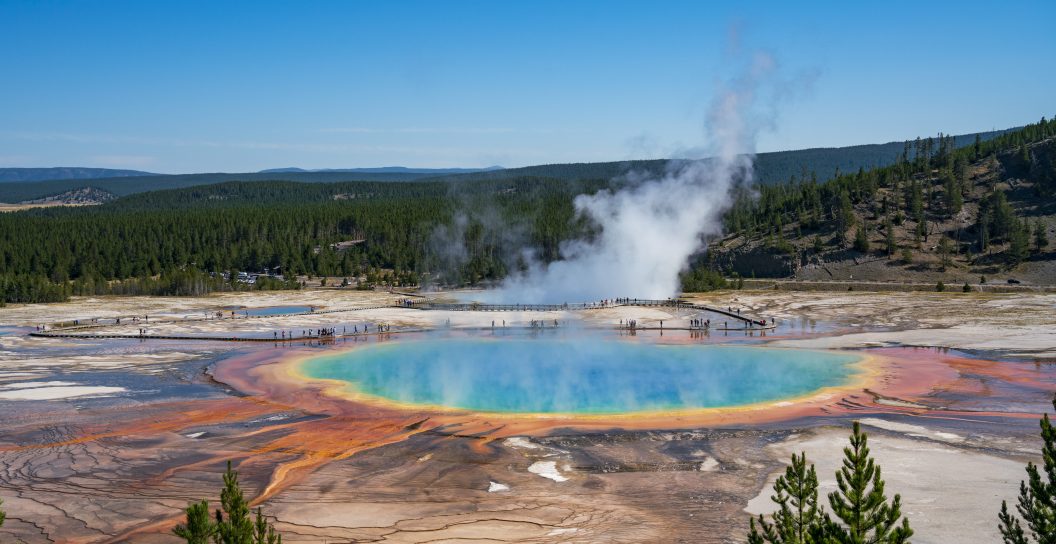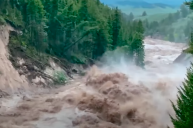Instead of simply enjoying nature and its beauty, some national park visitors feel the need to leave their mark wherever they go. From carving their initials into trees, rocks, and railings to building rock cairns along the trails, some park patrons ignore Leave No Trace Principles, endangering both ecological balance and beauty of the parks.
Being one of the most popular in the nation with many must-see attractions, Yellowstone National Park unfortunately also has more visitors who display bad national park etiquette. Last week, it seems a vandal targeted Grand Prismatic Spring, the most famous geothermal spring in the park, taking a stick to the colorful bacterial mats to create a "drawing." In order to restore the delicate ecosystem, two park rangers undertook some high-risk graffiti cleanup, as this Instagram video shows.
In the clip, the rangers at the spring's edge work gently to clean up the spring's bacterial mat. As steam comes up from the ground, one ranger leans over, careful not to disturb any area other than the one they are trying to fix. Using what looks like a car snow brush, the ranger gently sweeps the layer back and forth over the damaged section—while taking care not to fall into the scalding hot water.
The pool is home to many different types of cyanobacteria, including Synechococcus, Calothrix, and Phormidium, according to the International Collegiate Journal of Science. The geothermal spring's bacteria are responsible for the beautiful hues of orange and yellow that can be seen stemming from the turquoise pool's edges. Yellow and colorless bacteria live in the hottest waters, while orange, brown, and green-producing bacteria thrive in the cooler waters around the pool's edges.
The National Park Service urges all visitors to stay on the boardwalks and marked trails in the nation's parks. This rule is doubly important for the Grand Prismatic Spring, not only to preserve this park feature for future generations, but to protect visitors from the dangers of the pools, which are incredibly hot and can cause severe burns or even death if someone becomes submerged.




